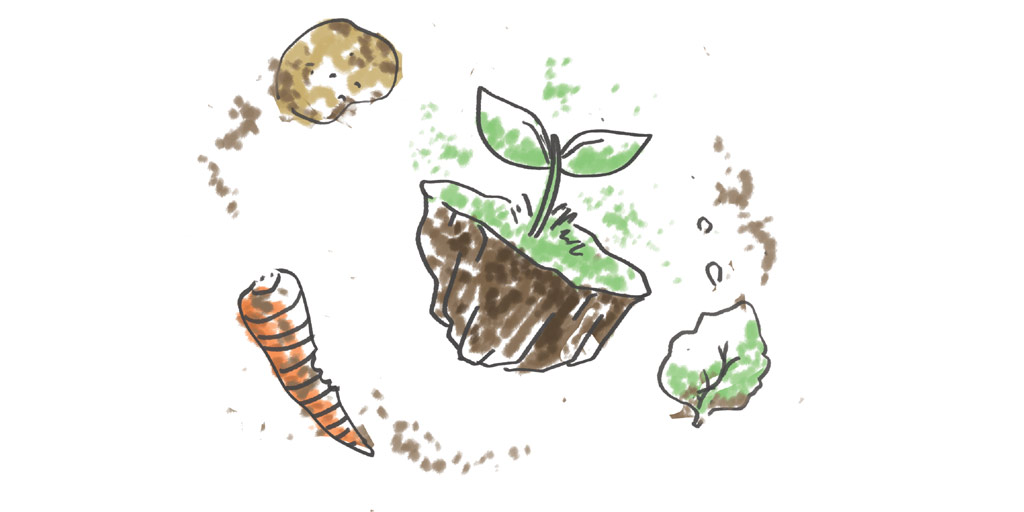Plastic straws are harming the environment
 CREDIT: ILLUSTRATION BY JARED LE
CREDIT: ILLUSTRATION BY JARED LESingle-use plastic straws are causing harm to the environment but it is important that other environmental issues get attention as well.
In the past year there has been a lot of attention on the negative impacts of single-use plastic straws.
While I do agree that it is important that people understand how plastic straws harm the planet, it is also important that we think about other ways we are generating plastic pollution.
According to Ocean Conservancy, at their annual International Coastal Cleanup plastic straws are among the top 10 items that volunteers find and there have been more than nine million straws picked up over the past 30 years.
Ocean Conservancy found that the average person uses 1.6 straws each day and the yearly amount could be reduced by 5,000,000 if 25,000 Canadians pledge to stop using plastic straws.
To put this into perspective, think about the 21,000 full time students at Fanshawe’s main campus using an average of 1.6 straws per day. At that rate, Fanshawe students would be using 33,600 straws per day and over 12.2 million per year. These straws can take up to 200 years to decompose and will end up having a negative impact on the environment. According to One Less Straw, many marine animals cannot distinguish what is food and what is trash which leads to one million seabirds and 100,000 marine animals dying each year as a result from ingesting plastic.
Some countries have already decided to ban single-use plastic straws including Britain, Scotland and Taiwan. Vancouver is the first major Canadian city to announce the elimination of straws to be implemented by fall 2019 and a number of Edmonton restaurants are switching to more eco-friendly straw options.
According to a June 8 press release on Newswire, Canadian fast food chain, A&W, announced earlier this year that they will eliminate plastic straws by the end of 2018.
A&W Canada’s president and Chief Executive Officer, Susan Senecal, announced that all A&W chains will remove plastic straws from their restaurants by the end of 2018.
“Reducing waste from landfills is a top priority for A&W and this is one big way that we can make a difference,” Senecal said. “We are proud to make this change which has been driven by the wishes of our guests, franchisees and staff.” Moving away from plastic straws is simple because there are a number of alternatives that are readily available for personal or business uses.
Many companies are switching to naturally degradable straws including paper straws, edible straws, straws made from straw and bamboo straws.
Other materials that companies are making straws out of include glass, metal, ice and silicone. I think that this is an important movement but I think it should only be a starting point in the aim to reduce plastic waste.
Since this issue has received so much media attention a lot of countries and businesses have started to change how straws are provided to people.
However, there are other issues such as plastic bags and improper recycling methods that deserve the same attention, if not more.
If you think about it, when you get a combo meal from your favourite fast food restaurant the plastic straw is only a small portion of the waste that the meal generates.
Restaurants and businesses have started to include recycling bins that encourage customers to sort their recycling but there is no way for people to know if these companies actually end up properly recycling these items.
I think that the movement of banning plastic straws is a step in the right direction but there needs to be more initiatives to reduce plastic pollution and I do not think that companies need to wait until there is negative media attention on certain environmental issues to start making changes.
Editorial opinions or comments expressed in this online edition of Interrobang newspaper reflect the views of the writer and are not those of the Interrobang or the Fanshawe Student Union. The Interrobang is published weekly by the Fanshawe Student Union at 1001 Fanshawe College Blvd., P.O. Box 7005, London, Ontario, N5Y 5R6 and distributed through the Fanshawe College community. Letters to the editor are welcome. All letters are subject to editing and should be emailed. All letters must be accompanied by contact information. Letters can also be submitted online by clicking here.














